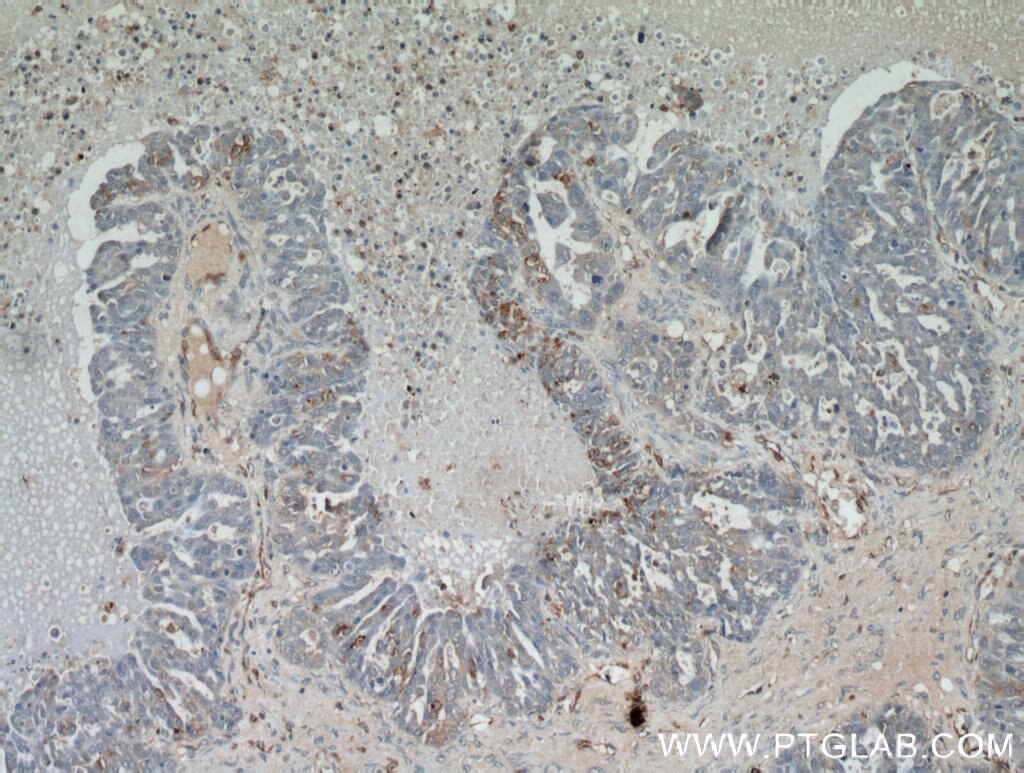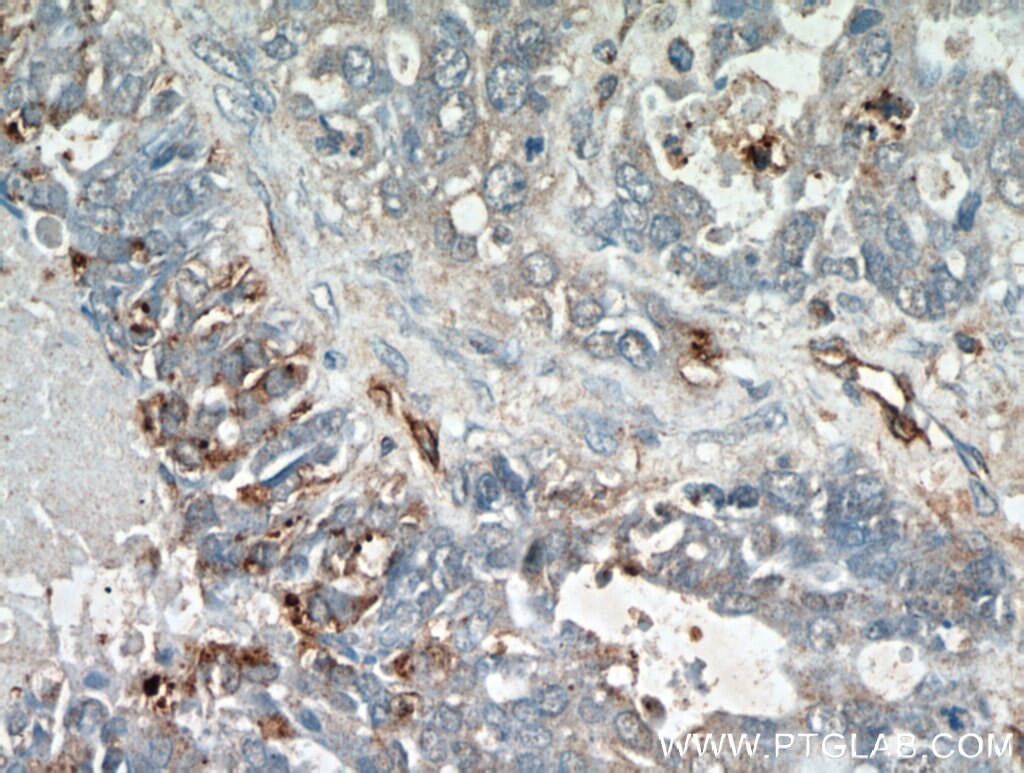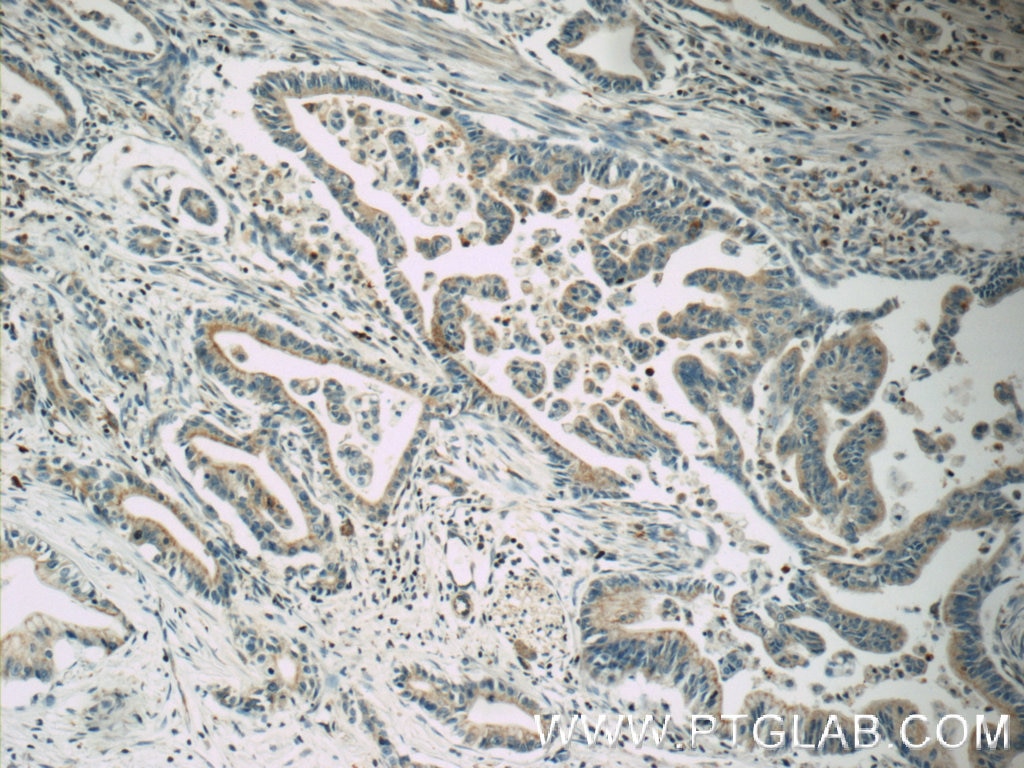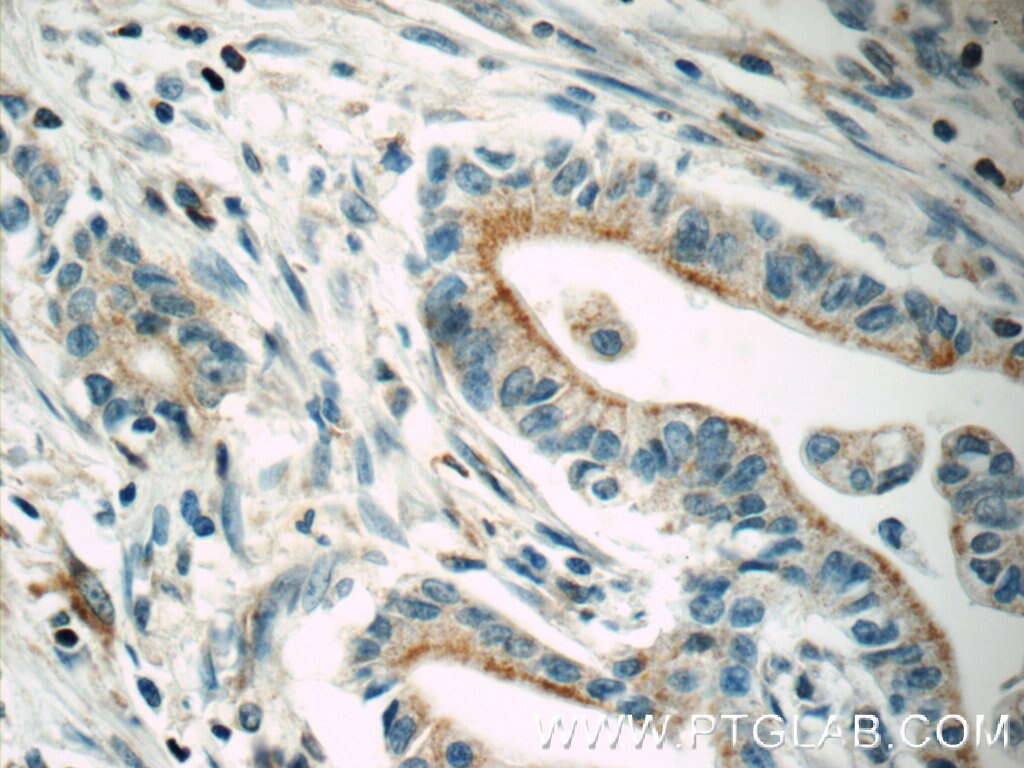Anticorps Polyclonal de lapin anti-ABCC5
ABCC5 Polyclonal Antibody for IHC, ELISA
Hôte / Isotype
Lapin / IgG
Réactivité testée
Humain
Applications
WB, IHC, ELISA
Conjugaison
Non conjugué
N° de cat : 19503-1-AP
Synonymes
Galerie de données de validation
Applications testées
| Résultats positifs en IHC | tissu de tumeur ovarienne humain, tissu de cancer du pancréas humain il est suggéré de démasquer l'antigène avec un tampon de TE buffer pH 9.0; (*) À défaut, 'le démasquage de l'antigène peut être 'effectué avec un tampon citrate pH 6,0. |
Dilution recommandée
| Application | Dilution |
|---|---|
| Immunohistochimie (IHC) | IHC : 1:20-1:200 |
| It is recommended that this reagent should be titrated in each testing system to obtain optimal results. | |
| Sample-dependent, check data in validation data gallery | |
Applications publiées
| WB | See 1 publications below |
| IHC | See 2 publications below |
Informations sur le produit
19503-1-AP cible ABCC5 dans les applications de WB, IHC, ELISA et montre une réactivité avec des échantillons Humain
| Réactivité | Humain |
| Réactivité citée | Humain |
| Hôte / Isotype | Lapin / IgG |
| Clonalité | Polyclonal |
| Type | Anticorps |
| Immunogène | Peptide |
| Nom complet | ATP-binding cassette, sub-family C (CFTR/MRP), member 5 |
| Masse moléculaire calculée | 161 kDa |
| Numéro d’acquisition GenBank | NM_005688 |
| Symbole du gène | ABCC5 |
| Identification du gène (NCBI) | 10057 |
| Conjugaison | Non conjugué |
| Forme | Liquide |
| Méthode de purification | Purification par affinité contre l'antigène |
| Tampon de stockage | PBS with 0.02% sodium azide and 50% glycerol |
| Conditions de stockage | Stocker à -20°C. Stable pendant un an après l'expédition. L'aliquotage n'est pas nécessaire pour le stockage à -20oC Les 20ul contiennent 0,1% de BSA. |
Informations générales
ABCC5, also named as MOAT-C, pABC11, SMRP, and MRP5, belongs to the ABC transporter superfamily, ABCC family, and Conjugate transporter (TC 3.A.1.208) subfamily. ABCC5 acts as a multispecific organic anion pump that can transport nucleotide analogs. ABCC5 functions in the cellular export of its substrate, cyclic nucleotides. This export contributes to the degradation of phosphodiesterases and possibly an elimination pathway for cyclic nucleotides. Studies show that ABCC5 provides resistance to thiopurine anticancer drugs, 6-mercatopurine and thioguanine, and the anti-HIV drug 9-(2-phosphonylmethoxyethyl) adenine. ABCC5 may be involved in resistance to thiopurines in acute lymphoblastic leukemia and antiretroviral nucleoside analogs in HIV-infected patients. Since it is glycosylated, the apparent molecular weight of ABCC5 could be variable, ranging from 161 kDa to 200 kDa (PMID: 10893247; PMID: 15897250; PMID: 31338999).
Protocole
| Product Specific Protocols | |
|---|---|
| IHC protocol for ABCC5 antibody 19503-1-AP | Download protocol |
| Standard Protocols | |
|---|---|
| Click here to view our Standard Protocols |
Publications
| Species | Application | Title |
|---|---|---|
Front Oncol Screening of co-pathogenic genes of non-alcoholic fatty liver disease and hepatocellular carcinoma | ||
Front Genet Clinical Significance and Potential Mechanisms of ATP Binding Cassette Subfamily C Genes in Hepatocellular Carcinoma. | ||
Oncol Lett Effects of histone deacetylase inhibitors on ATP-binding cassette transporters in lung cancer A549 and colorectal cancer HCT116 cells. |
Avis
The reviews below have been submitted by verified Proteintech customers who received an incentive for providing their feedback.
FH Yu Siong (Verified Customer) (03-01-2019) | Multiple bands appeared, non-specific binding, bands did not appear at exact molecular size.
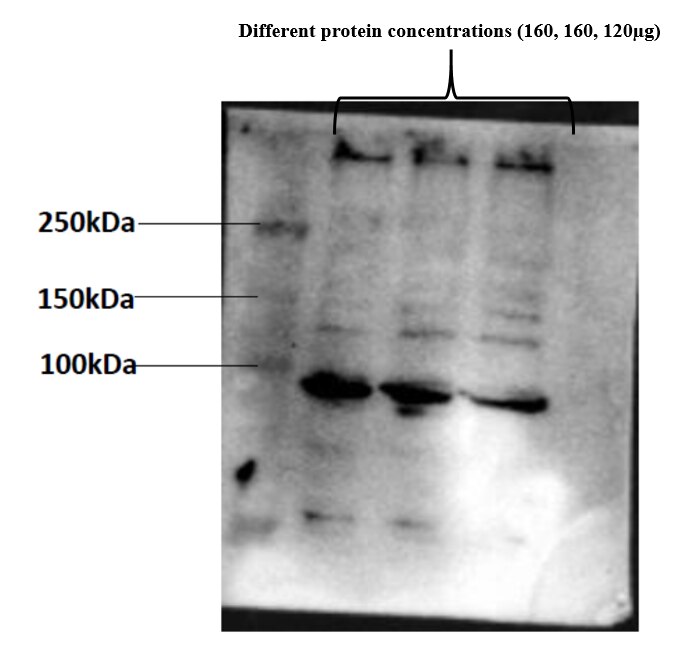 |
